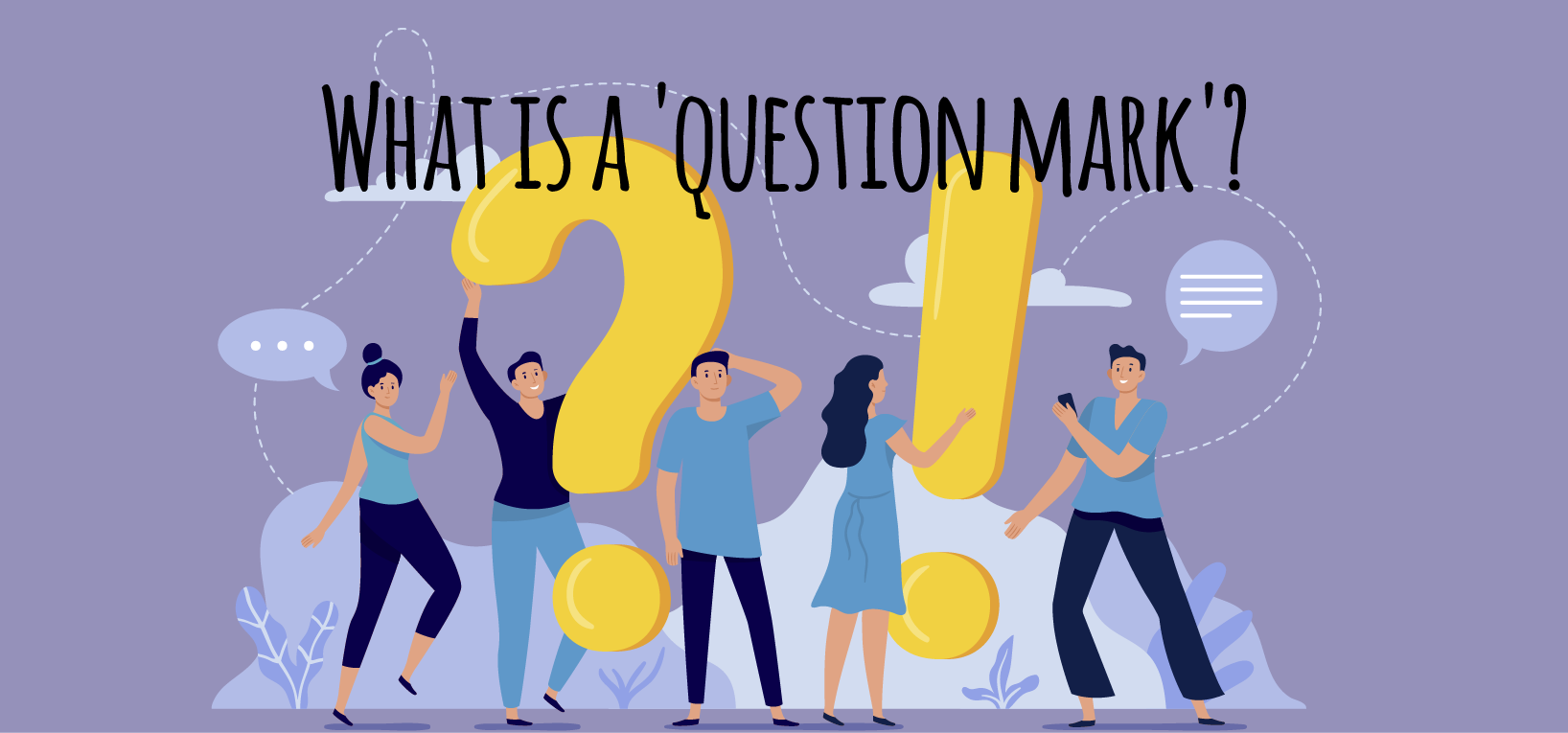What is a ‘question mark’?

What is a ‘question marks’?
INDEX OF CONTENTS
- Most typical questions
- Direct question and rhetorical question
A question mark is a device used to convert a statement into a question. It almost always consists of a pronoun, an auxiliary verb, and sometimes the word no. Although it begins as a statement, the question mark prevails when it comes to the final mark.
As can be seen when the statement is positive, the question mark is expressed in the negative; when the statement is negative, the label question is positive. (There are some exceptions to this, often expressing an element of surprise or sarcasm: “So you’ve made your first million, right?” “Oh, that’s your plan, right?”):
Most typical questions
- He should quit smoking, shouldn’t he?
Debería dejar de fumar, ¿no?
- He shouldn’t have quit his diet, should he?
No debería haber dejado su dieta, ¿verdad?
- They’re not doing very well, are they?
No lo están haciendo muy bien, ¿verdad?
Tenga cuidado de no poner un signo de interrogación al final de una pregunta indirecta.
- The instructor asked the students what they were doing.
El instructor preguntó a los estudiantes qué estaban haciendo.
- I asked my sister if she had a date.
Le pregunté a mi hermana si tenía una cita.
- I wonder if Cheney will run for vice president again.
Me pregunto si Cheney volverá a postularse para vicepresidente.
- I wonder whether Cheney will run again.
Me pregunto si Cheney volverá a correr.
You have to be careful of …
distinguishing between an indirect question and a question that is within a sentence that we want to end with a question mark.
- We can get to Boston quicker, can’t we, if we take the interstate?
Podemos llegar a Boston más rápido, ¿no, si tomamos la interestatal?
- His question was, can we end this statement with a question mark?
Su pregunta fue, ¿podemos terminar esta declaración con un signo de interrogación?
- She ended her remarks with a resounding why not?
Terminó sus comentarios con un rotundo ¿por qué no?
- I wonder: will Cheney run for office again?
Me pregunto: ¿Cheney volverá a postularse para el cargo?
Direct question and rhetorical question
Put a question mark at the end of a sentence that is, in fact, a direct question . (Sometimes writers just forget.) Rhetorical questions (asked when an answer is not expected) are questions and deserve to end with a question mark:
- How else should we end them, after all?
¿De qué otra manera deberíamos acabar con ellos, después de todo?
- What if I said to you, “You’ve got a real problem here”? (Notice that the question mark here comes after the quotation mark and there is no period at the end of the statement.)
¿Qué pasa si te digo: “Tienes un problema real aquí”?
Sometimes a question will end with a series of short questions .
When that happens, especially when the short questions are more or less follow-up questions to the main question, each of the small ones can start with a lowercase letter and end with a question mark.
- Who is responsible for executing the plan? the coach? coaching staff? players?
¿Quién es responsable de ejecutar el plan? ¿el entrenador? el cuerpo técnico? ¿los jugadores?
If a question mark is part of an italicized or underlined title , make sure the question mark is also italicized:
- My favorite book is Where Did He Go?
Mi libro favorito es ¿’Where did he go’?
(Do not add a period after a sentence that ends with the question mark in the title. The question mark will also suffice to end the sentence.) If the question mark is not part of a title that ends in a sentence, do not italicize the question mark:
- Did he sing the French national anthem, la Marseillaise?
¿Cantó el himno nacional francés, la Marsellesa ?
When a question ends with an abbreviation, end the abbreviation with a period and then add the question mark.
- Didn’t he use to live in Washington, D.C.?
¿No solía vivir en Washington, DC?
When a question constitutes a polite request,
it is generally not followed by a question mark. This becomes more true as the request becomes longer and more complex:
- Would everyone in the room who hasn’t received an ID card please move to the front of the line.
¿Podrían pasar todos los presentes en la sala que no hayan recibido una tarjeta de identificación al frente de la fila?
If you have wondered what the next calls for ANY official exam are, on the examexam page you will find all the answers.


